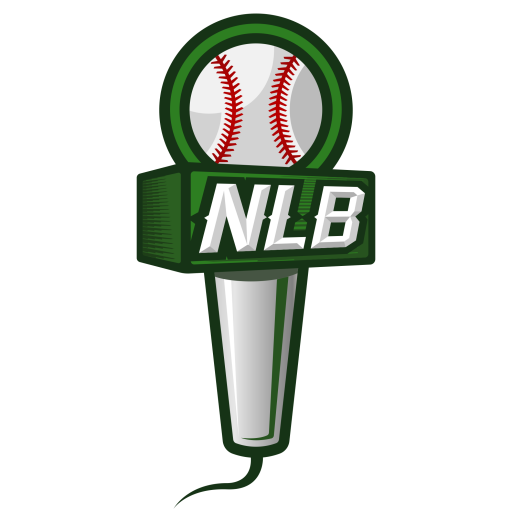
This week we are joined by one of the scrappiest players in the Big Leagues today, the LA Dodgers’ Justin Sellers. Sellers made his Major League debut in 2011, and has already played 2B, SS and 3B in the Big Leagues this season. At first glance, it doesn’t make sense that he should be in this position considering his 5’9-and-155-pound frame. That is, until you get to spend time with him and see his intense drive and passion for playing the game of baseball. If there was ever a ballplayer deserving of the description of “grinder” or “dirt bag” (a baseball complement, NOT personal life observation), Justin Sellers is that ballplayer.
I had a blast hanging out with Justin and picking his brain. In the following sit-down interview we touch on the importance of owning the mental side of baseball, his definition of mental toughness, what went through his mind during his MLB debut, his specific definition of what hard work should look like to a serious ballplayer, succeeding despite his size, and much more.
What is one baseball-related lesson you learned early on that has led to your success throughout the years?
You have to work hard. Take nothing for granted. Do whatever you have to do, and that plays a major role. In high school, when I would hit with Steve Springer, he would constantly remind me of the importance of the mental side of the game. If you’re mentally tough every day, no matter what level you’re at, you’re going to be successful.
How do you define mental toughness?
Honestly, mental toughness shows most when you fail. If you fail as much as I have in my career, like going 0-4, 0-22, 1-15, there’s a lot of failure in that. If you can get used to that but have a positive attitude about it, you’re going to better yourself. You’ll be fine.
Can you walk us through your game day routine?
It starts when you wake up in the morning. It starts early. Wake up and get a good meal. You know who’s throwing that day. Go to the stadium, watch some video on him, and stick with a game plan on that guy. Think about it in the cage, on deck, in batting practice. You can’t change your approach when you get in the box. It starts in the cage getting mentally prepared. Then you carry it in at 7:00 that night.
When you step into the box, do you do something that brings you into your “happy place”?
You know, when you step in the box, it’s just you against the pitcher. You don’t really have an edge, so you just have to be mentally tough. You just hope for a quality at-bat, and not to make a mistake. Baseball is so hard as it is. We can make it harder on ourselves by thinking too much or trying to do something we can’t control. If you just have the mindset of having a quality at-bat and not do too much, you will be fine.
What was your mindset you got called up to the Dodgers and made your MLB debut?
It’s still the same game. You have to know you can play at this level. If you doubt that you can play at this level, then good luck. It will chew you up and spit you out. But if you believe in yourself that you can play here, the sky is the limit.
How do you personally get out of hitting slumps?
That’s where the cage routine comes in. If you’re struggling in the game or have a bad series, but you have a good work ethic in the cage with your hitting guy, that gives you something to fall back on. If I’m 0-4, but I feel good in the cage, fine. I’m 0-4 again, but I feel good in the cage, I’m fine. Work eventually will pay off. You can do everything right but still go 0-4, so if you continue to work every day, you’ll start to better yourself.
Expand on what “work ethic” means to you. What does hard work really look like to you?
You gotta eat right. You gotta get your rest. If you’re not getting your rest, then you might as well throw all the work you’re doing on the field, off the field, and in the weight room out the window. It doesn’t mean anything if your body doesn’t get that time to rest and heal. For the young ballplayers coming up, the work ethic that you want to put in is five days of hard work in the weight room and on the field. Five days. Hard. And you’ll be fine. If you have the skills, it will take over. But you can always better yourself in the cage, in the weight room, or taking ground balls, whatever. Everyday, you have a chance to better yourself.
You’re a smaller guy that has had people doubting you all along. What motivates you to keep grinding?
The love for the game is what motivated me. I grew up around it. My dad was a major-leaguer, so I fell in love with the game at a young age. I’ve always wanted to play in the major leagues since I was little. When I was five years old and told my dad that I wanted to be like him. I ran into walls where people would say, “You’re too small. You better start lifting weights.” People would doubt me, but that gave me the drive to work harder than everybody else. I think that’s how I made it to the big leagues.
You know, I’m so small, dude. I would doubt myself a lot, but when I got the opportunity, I capitalized. I did struggle at the plate, but I never stopped working. I continued to work and continued to better myself, and that’s what I still gotta to do to stay up here. I have guys knocking at my heels wanting my position. I have to do this stuff every day.
How tall are you?
I’m 5’9” and a half, nearly 5’10. I’m 160 lbs. But in high school, I was 5’5”. When I was drafted, I was probably 5’8” and 140 lbs. So, I had to work my tail off. And I talk to the major leaguers here and pick their brains about how to work hard. Last year I picked Jamie Carroll’s brain about how he approaches ground balls and his approach at the plate. If you open your mind to it, you can learn so much. If you block it out and you’re stubborn, that’s your own fault. You can always learn something to better yourself whether it’s in the cage or the dugout.
What is one piece of advice you’d give aspiring ball players out there?
Never give up. I got it tattooed on my hands so I can see it. It’s a constant reminder. Never give up on what you love and what you want. Never give in to the at bat. Keep your focus on the prize. I never played basketball or football because I was always too small, but my love for the game of baseball drove me to get here.



